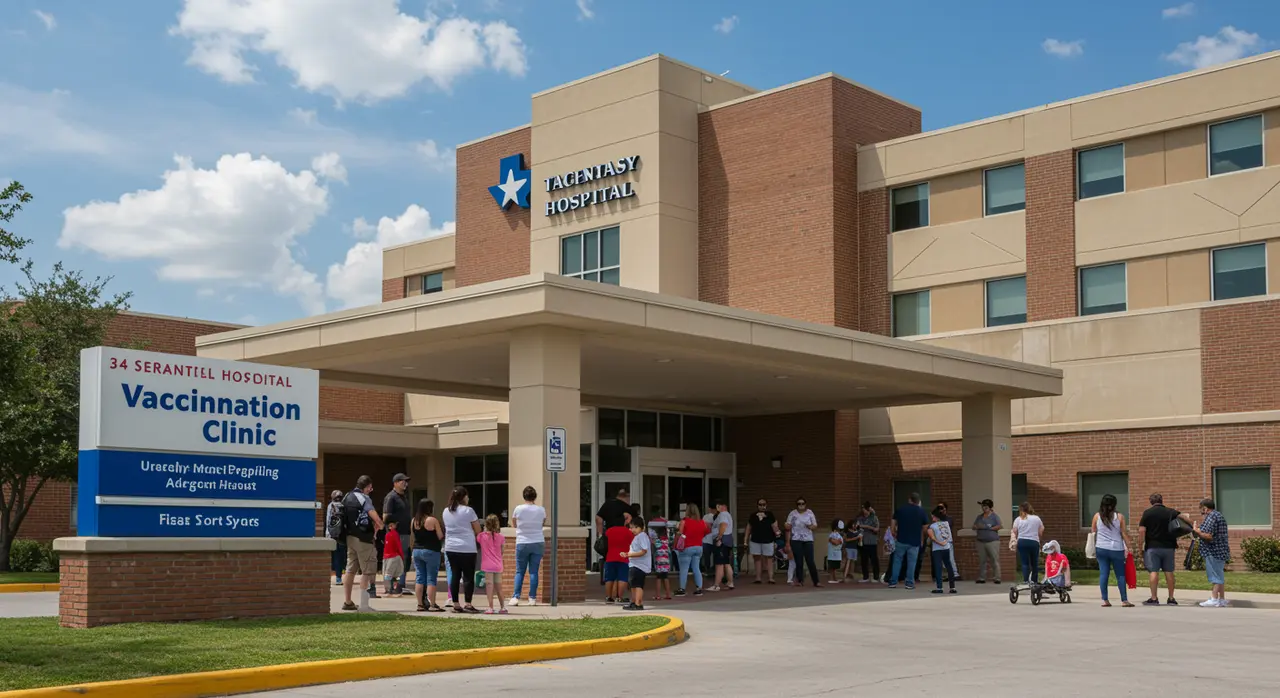Texas Measles Outbreak Claims Second Child, Highlights Urgent Need for Vaccination
67 views
An 8-year-old girl in Lubbock, Texas, has died from measles, becoming the second fatality in a relentless outbreak that has infected nearly 500 Texans since January. The tragedy underscores the devastating toll of a disease once thought to be largely controlled in the United States, as it continues to spread through communities with low vaccination rates. Health officials are sounding alarms, urging families to act swiftly in protecting their children through immunization, as the outbreak shows no signs of abating.
Texas Grapples with Measles Outbreak Amid Vaccination Gaps
The outbreak, which originated in Gaines County, has now extended its reach to 18 other counties across Texas, leaving public health officials scrambling to contain its spread. A staggering 315 cases have been reported in Gaines County alone, with a significant portion stemming from a large Mennonite community known for low vaccination uptake. Across the state, 481 cases have been confirmed, with 56 requiring hospitalization due to severe complications such as pneumonia and encephalitis. The ripple effect has even crossed state lines, as linked cases have emerged in Oklahoma, prompting warnings that the outbreak could persist for months.

Measles, a highly contagious viral disease, was declared eliminated in the United States in 2000 thanks to widespread vaccination efforts. However, its resurgence in recent years has been fueled by pockets of vaccine hesitancy and misinformation, leaving vulnerable populations exposed. The current outbreak in Texas serves as a grim illustration of this phenomenon, with unvaccinated children bearing the brunt of the infections. The death of the Lubbock girl, combined with an earlier fatality in Gaines County, highlights the dire consequences of leaving communities unprotected against preventable diseases.
Health officials are doubling down on their calls for vaccination, emphasizing the critical role of the measles, mumps, and rubella (MMR) vaccine in halting the spread of the virus. The Centers for Disease Control and Prevention (CDC) recommends two doses of the MMR vaccine for children, with the first dose administered between 12 and 15 months of age and the second between 4 and 6 years. In areas affected by the outbreak, officials are urging parents to consult pediatricians about early vaccination for infants as young as six months. Despite these recommendations, vaccination rates in some Texas counties remain alarmingly low, allowing the virus to find fertile ground for transmission.
The Mennonite community in Gaines County has been a focal point of the outbreak, with its resistance to vaccination rooted in religious and cultural beliefs. While public health officials have worked to engage community leaders in dialogue about the importance of immunization, progress has been slow. This underscores the broader challenge of addressing vaccine hesitancy, which often involves navigating deeply entrenched fears and misconceptions. The outbreak has also reignited debates about the role of government in mandating vaccinations, with some advocates calling for stricter policies to ensure herd immunity.
The situation in Texas is a stark reminder of the fragility of public health achievements in the face of complacency and misinformation. Measles is not merely a childhood illness; it is a formidable adversary capable of causing severe complications and death. The loss of an 8-year-old girl in Lubbock is a heartbreaking testament to the urgency of vaccination efforts, as well as the collective responsibility to protect the most vulnerable among us.
As the outbreak continues to unfold, it serves as a cautionary tale for other states and communities grappling with similar challenges. The interconnectedness of modern society means that no region is immune to the consequences of low vaccination rates. The linked cases in Oklahoma underscore the ease with which diseases can cross borders, making coordinated efforts essential to stemming the tide.
Ultimately, the Texas measles outbreak is a call to action—a reminder that the battle against preventable diseases is far from over. Vaccination is not merely a personal choice; it is a societal imperative that safeguards the health of entire communities. For the families mourning the loss of their children, the cost of inaction is all too clear. As health officials work tirelessly to contain the outbreak, their message remains steadfast: immunization is the most effective weapon against measles, and it is one that must be wielded without hesitation.